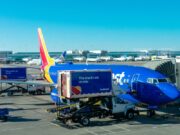When operating under IFR, ATC communications play a critical role in ensuring a safe and efficient operation. By complying with established regulatory requirements, each operator of the National Airspace System must maintain high levels of situational awareness, in order to prevent any potential loss of separation.

IFR clearances received from uncontrolled airports may contain a “clearance void time” hence, they pose a greater threat than those issued at controlled airfields. Understanding the significance of “void times” is critical, as it could result in a potential regulatory violation. Departing under IFR after the expiration of a void time, implies operating without a proper clearance, resulting in ATC unable to guarantee traffic and terrain separation. If an extension of a void time is warranted, notify the appropriate ATC facility as soon as practical. Ground-based stations, including Ground and Remote Communication Outlets, are particularly useful when operating at uncontrolled airports. These provide a convenient means to communicate with ATC, on the ground, directly through the aircraft VHF radios. A directory can be found in the Charts Supplement Publication.
Similarly, pilots must be aware of potential ATC clearances inconsistent with an aircraft equipment requirements (navigation or performance demands). If unable to comply, the Pilot in Command is ultimately responsible for relaying such circumstance to ATC. All aircraft equipment shall be specified in detail upon filing of the flight plan. As such, it will prevent the potential issuance of any clearances inconsistent with the aircraft capabilities.
Per FAR 91.183, there are several elements pilots must report to ATC. It is important to note these only apply under IFR flight. They include: reporting fixes, leaving a clearance limit, equipment failures, true airspeed deviations, among others. For those operating under Part 121, individual air carrier operating specifications may extend additional reporting responsibilities, such as notifying the flight dispatcher.
Evidently, attention to detail is crucial to guarantee a safe operation, especially under IFR flight. The risk of losing separation is not an option. Awareness is the most effective mitigating tool. Threats range from similar aircraft call signs, to misunderstanding of an ATC transmission. Crewed flight decks shall always verify clearances with the other pilot, following robust CRM practices. On the other hand, single-pilot flight decks must rely on solid training, adherence to standard procedures, and threat mitigation strategies.






















































































































